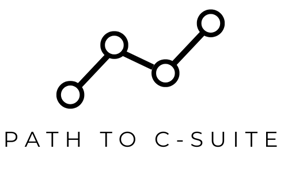The Evolving Role of a CEO: Skills and Attributes for 2023 and Beyond
3/15/20255 min read


Understanding the Current Landscape for CEOs
In today's dynamic business environment, the role of a CEO has evolved significantly, driven by rapid technological advancements, globalization, and shifting consumer behaviors. The increasing pace of change necessitates that CEOs adapt not only their strategic approaches but also their leadership styles to meet the demands of a constantly evolving marketplace.
Technological progress, particularly in digitalization and artificial intelligence, has transformed operational efficiencies and customer engagement methods. CEOs are now expected to harness these technologies to innovate and create value. This requires a firm understanding of not only the technology itself but also its implications for organizational culture and workforce dynamics. Embracing innovation is essential for maintaining competitive advantages in an era where digital disruption is commonplace.
Globalization has further complicated the landscape for CEOs, who must navigate diverse markets with varying regulations, cultural nuances, and consumer preferences. This interconnectedness demands a strategic vision that transcends borders while fostering inclusive growth. CEOs must demonstrate a keen awareness of geopolitical trends and their impact on market opportunities and risks. As a leader, building and maintaining relationships across international boundaries is paramount for success in an increasingly globalized economy.
Consumer behavior shifts present another challenge that CEOs must address. As customers become more informed and empowered, their expectations for transparency, sustainability, and ethical business practices have grown. CEOs must prioritize these values in their corporate strategies to build trust and foster loyalty among consumers. Moreover, the rise of social media amplifies the consumers' voice, making it imperative for CEOs to engage proactively and authentically with their audience to remain relevant.
These multifaceted challenges highlight the necessity for CEOs to adopt a forward-thinking and adaptable mindset. It is evident that the responsibilities of contemporary CEOs extend beyond traditional management roles, requiring a comprehensive understanding of emerging trends and the ability to strategically guide their organizations in uncertain times.
Essential Skills and Attributes for Today's CEO
In today's rapidly changing business landscape, the role of a CEO has evolved significantly. Modern chief executives are expected to possess a diverse set of skills and attributes that enable them to navigate complex challenges. Among these, emotional intelligence stands out as a crucial competency. CEOs must have the ability to understand and manage their own emotions while also empathizing with their teams. An emotionally intelligent leader fosters a positive corporate culture, thus enhancing employee engagement and retention. For instance, a CEO who provides support during organizational changes can mitigate anxiety, leading to a smoother transition.
Adaptability is another indispensable skill for today's leaders. The business environment is characterized by rapid technological advancements and shifting market dynamics. CEOs need to pivot quickly in response to these changes, whether it be embracing new technologies or reevaluating strategic objectives. Companies such as Netflix have thrived under leadership that demonstrated adaptability, as the CEO reframed business models in response to increasing competition and consumer behavior shifts.
Strategic thinking is equally vital, as it enables CEOs to set long-term goals and identify pathways to achieve them. Leaders with this attribute can assess market trends, allocate resources effectively, and develop innovative solutions. For example, a forward-thinking CEO might initiate corporate sustainability practices, recognizing the long-term benefits of operational changes while addressing consumer preferences for environmentally responsible companies.
Lastly, digital literacy has become essential as technology permeates all aspects of business. CEOs need to be well-versed in digital tools and trends to make informed decisions about investment and innovation. Leaders like Satya Nadella of Microsoft embody this quality, as they harness digital technologies to drive growth and improve company performance. In sum, the combination of emotional intelligence, adaptability, strategic thinking, and digital literacy equips today's CEOs to thrive amidst the complexities of modern corporate environments.
The Future CEO: Skills for 2030 and Beyond
As we look towards 2030, the landscape of leadership is poised to undergo significant transformations, challenging current and aspiring CEOs to adapt and embrace new skills and attributes. In a rapidly changing world, where sustainability, diversity, and technology intertwine with corporate strategy, CEOs must ready themselves to not only manage these trends but to leverage them for organizational success.
One paramount skill that future CEOs will need to hone is visionary leadership. As global crises and environmental concerns escalate, organizations will increasingly seek leaders capable of envisioning sustainable business practices that contribute positively to society while maintaining profitability. This involves not just understanding environmental sustainability but also embedding it into the core values of the company, thus fostering a culture of responsibility and long-term thinking among employees and stakeholders.
Diversity and inclusion will also take center stage in the arsenal of leadership skills. CEOs of the future will be required to champion diverse teams, not only to reflect the global marketplace but also to drive innovation and creativity within their organizations. By harnessing a multitude of perspectives and experiences, future leaders will be better equipped to tackle complex challenges and make informed decisions rooted in a broad understanding of societal issues.
The rise of remote work has reshaped the traditional workplace, creating a demand for flexibility and adaptability in leadership. Future CEOs must foster environments that support remote collaboration, prioritize employee well-being, and maintain morale in distributed teams. This includes investing in technology that facilitates communication and productivity while also cultivating a strong organizational culture that transcends geographical boundaries.
As we anticipate these evolving challenges, it is crucial for current and aspiring CEOs to develop not only these necessary skills but also an innovative mindset, enabling them to stay ahead of industry trends and navigate the uncertain future of business. By focusing on these areas, future leaders can position themselves for success in 2030 and beyond.
Preparing to Lead: Strategies for Current and Aspiring CEOs
As the role of a CEO continues to evolve, it becomes increasingly essential for current and aspiring leaders to adopt strategies that will help them cultivate the necessary skills and attributes required for effective governance. First and foremost, continuous learning is fundamental. In a rapidly changing business landscape, CEOs must stay informed about industry trends, emerging technologies, and innovative management practices. Attending workshops, enrolling in executive education programs, and pursuing relevant certifications can significantly enhance one’s knowledge base and leadership acumen.
Moreover, it is vital for aspiring CEOs to network with industry leaders. Building relationships with experienced professionals can provide invaluable insights into the challenges faced at the executive level. Joining professional organizations, attending industry conferences, and participating in local business events can facilitate these connections. Additionally, utilizing social media platforms, such as LinkedIn, can help foster engagement with influential figures and expand one's professional network.
A further recommendation for aspiring and current CEOs is to seek out mentorship opportunities. Establishing a relationship with a mentor who has a wealth of experience in leadership can offer guidance, feedback, and moral support during the career development journey. Mentors can help their mentees identify their strengths while also addressing areas for improvement, ultimately better preparing them for the responsibilities of a CEO.
Additionally, embracing a mindset of adaptability is crucial. The ability to navigate setbacks, embrace change, and remain open to new ideas will greatly enhance a CEO’s effectiveness. Lastly, fostering an inclusive workplace culture that encourages diverse perspectives is not just a moral imperative; it also drives innovation. In conclusion, by actively engaging in continuous learning, expanding networks, seeking mentorship, and cultivating adaptability, current and aspiring CEOs can effectively prepare themselves for the dynamic challenges of leadership in 2023 and beyond.
Contact & About
Newsletter
© 2025. All rights reserved.
Legal
About Us


